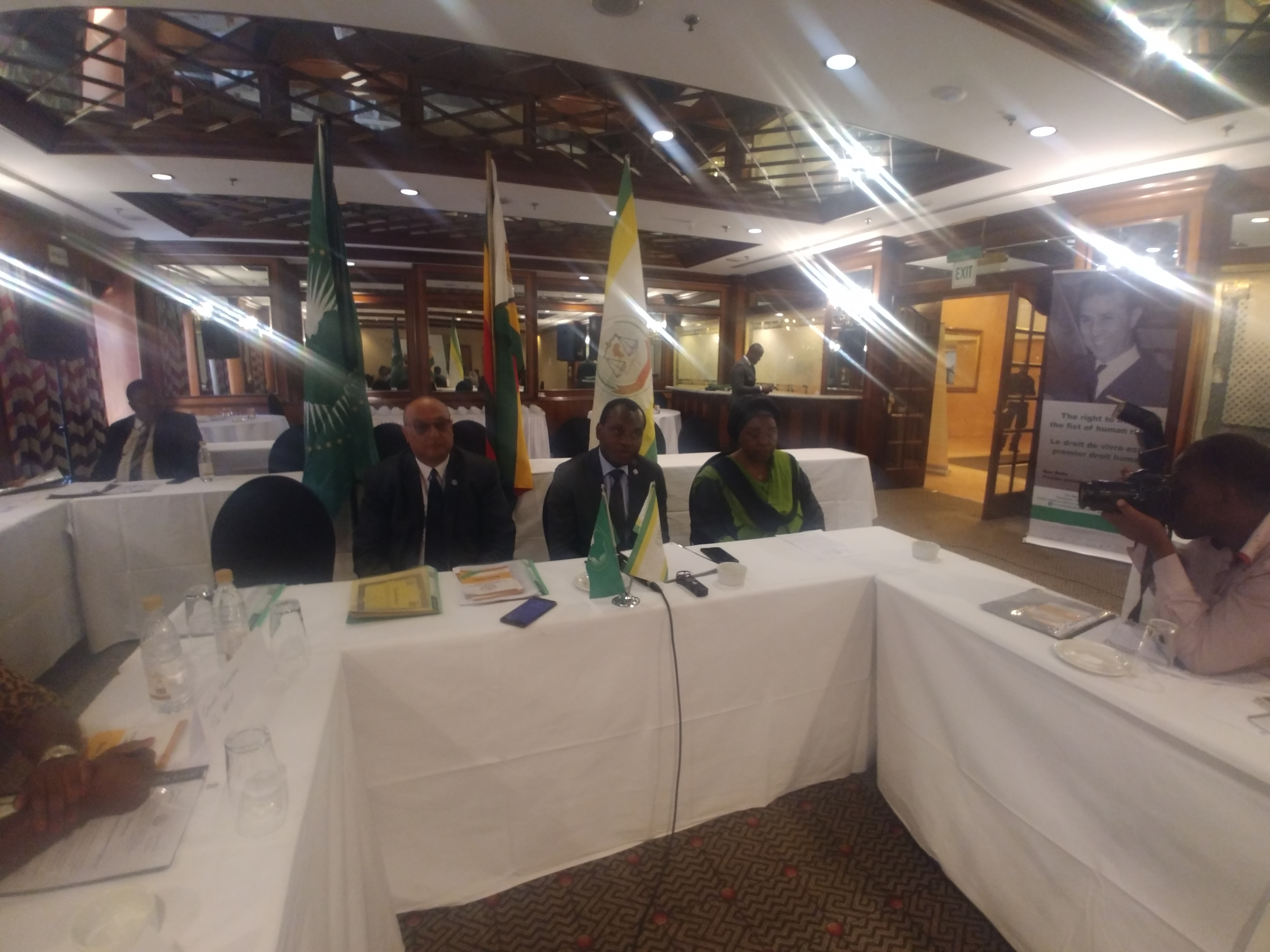The African Court on Human and People’s Rights (AfCHPR) is in Zimbabwe on a sensitisation mission with a view of promoting the Pan African Judicial Organ.
“These visits will help raise awareness of the Court’s existence and encourage African States to ratify the Protocol establishing the Court and make the Declaration to allow individuals and access the Court directly,” stressedPresident of the Court, Hon Justice Sylvian Ore.
The Comoros ratified the Protocol on 23 December 2013 but is yet to make the Declaration, whereas Zimbabwe is yet to ratify the Protocol and make the Declaration.
During the mission, the delegation of the Court led by its President Justice Ore, will pay courtesy calls on key officials, including the President, Minister of Foreign Affairs, Minister of Justice and Speaker of Parliament, among others.
“For the Court to discharge its mandate effectively and further strengthen the African human rights system, a greater number of countries must ratify the Protocol and make the Declaration under Article 34 (6),” Underlined President Ore.
The African Court on Human and People’s Rights was established by virtue of Article 1 of the Protocol to the African Charter on Human and People’s Rights on the establishment of an African Court on Human and People’s Rights to complement the protective mandate of the African Commission on Human and People’s Rights, with a view to enhancing the protection of human rights on the continent.
Since the adoption of the Protocol in June 1998, 30 0f 55 AU Member States have ratified it and only nine State Parties have made the declaration under Article 34 (6). These are Burkina Faso, Benin, Ghana, The Gambia, Cote d’Ivoire, Mali, Malawi, Tanzania and Tunisia. As at 31 July 2019, the Court received 220 applications of which 62 have been finalised.
The Court is composed of 11 Judges, nationals of Member States of the African Union elected in their individual capacity. The Court meets four times a year in Ordinary Sessions and may hold Extraordinary Sessions.
